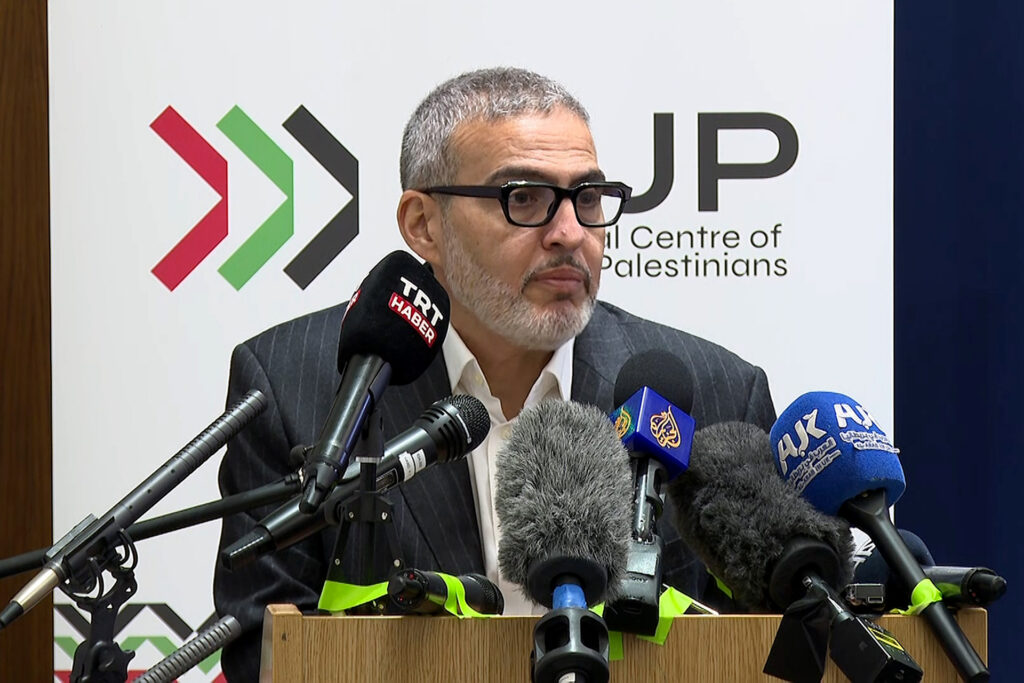Palestinian doctor Ghassan Abu Sitta, who recently returned from Gaza, narrated the horrors of the Israeli aggression on the Gaza Strip, hoping that his testimony to the British police would lead to trials on charges of committing war crimes. He confirmed that he treated people with burns resulting from white phosphorus, the use of which international law prohibits as a chemical weapon.
Surgeon Ghassan Abu Sitta, 54 years old, who specializes in war injuries, spent 43 days volunteering in the Gaza Strip, most of which were in Al-Ahly and Al-Shifa hospitals in the northern Strip.
The doctor – who holds British citizenship – confirmed that the severity of the current conflict exceeds the severity of other conflicts during which he worked, in Gaza, Iraq, Syria, Yemen and southern Lebanon. He explained – in an interview with Agence France-Presse – that “like the difference between a flood and a tsunami, the entire scope is completely different.”
He stressed “the large number of wounded and dead children, the scale of the disaster, and the intense bombing operations at a time when the health system in Gaza became unable to absorb within days of the start of the war.”
Difficult decisions
Since last October 7, Israel has been waging a devastating war on the Gaza Strip, which as of yesterday, Sunday, left 22,835 martyrs and 58,416 wounded, most of them children and women, massive infrastructure destruction and an unprecedented humanitarian catastrophe, according to Palestinian and UN sources.
Abu Sitta, who was born in Kuwait and has lived in Britain since the late 1980s, arrived in Gaza from Egypt on October 9 as part of a team affiliated with Doctors Without Borders.
“From the beginning, the capacity was less than the number of infected people we had to treat,” he recalled. “We had to make difficult decisions about who to treat.”
He talked about the case of a 40-year-old man who arrived at the hospital with shrapnel in the head. He needed to undergo an X-ray examination and be seen by a neurosurgeon, but that was not available.
He added, “We told his children about this, and they stayed around the stretcher on which he was placed that night until his death in the morning.”
Hospitals quickly ran out of anesthetics and painkillers, forcing Abu Sitta to perform “very painful cleaning operations on the wounds” of injured people without the possibility of alleviating their pain.
He explained, “This was the only option available, or see them (the wounded) die from a generalized blood infection.”
White phosphorus
Abu Sitta confirmed that he treated people with burns caused by white phosphorus, whose use as a chemical weapon is prohibited by international law, but remains permissible for the purposes of illuminating battlefields or creating a smoke screen.
Abu Sitta said, “It is an injury that can be distinguished (from other injuries). Phosphorous continues to burn into the deepest parts of the body, until it reaches the bones.”
The doctor explained that he left Gaza because the shortage of medical equipment prevented him from performing operations.
Since his return to Britain, he said he has spent most of his time alerting political leaders and humanitarian organizations to the urgent need for aid.
He added, “I try to help the sick (in Gaza) as much as I can by carrying their voices abroad.”
The doctor indicated that he notified the London police of the injuries he saw, the type of weapons used, the use of white phosphorus, and the attacks against civilians.
He also narrated how he survived the Israeli attack on Al-Ahli Hospital last October 17.
Abu Sitta concluded by saying, “In the end, justice will befall these individuals, within 5 or 10 years, or when they are eighty years old, when the balance of power in the world allows for justice to be achieved for the Palestinians.”

